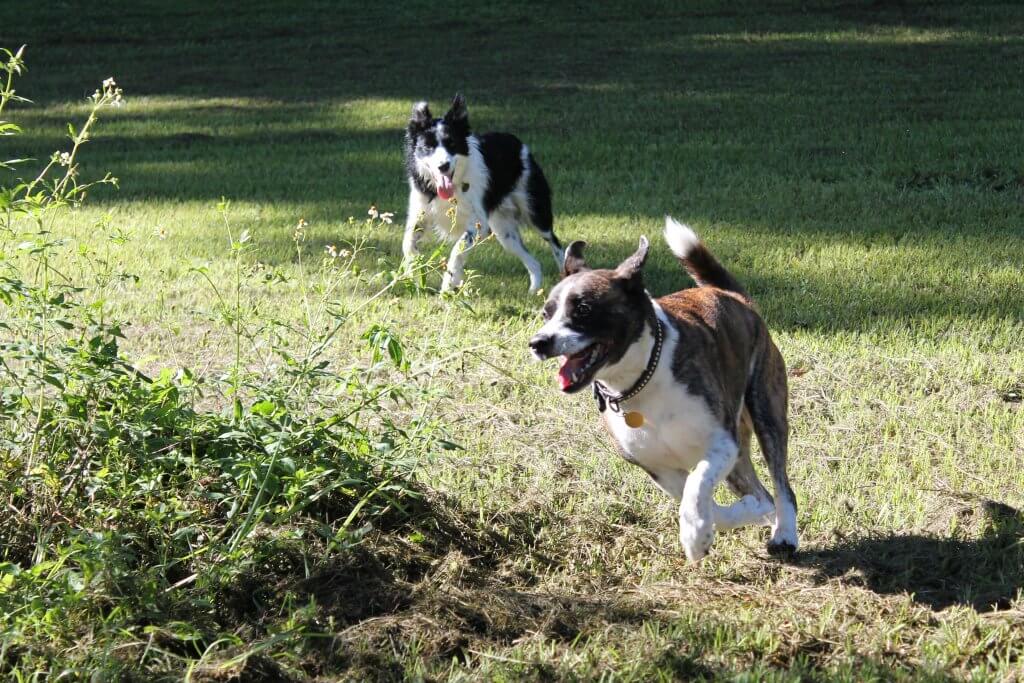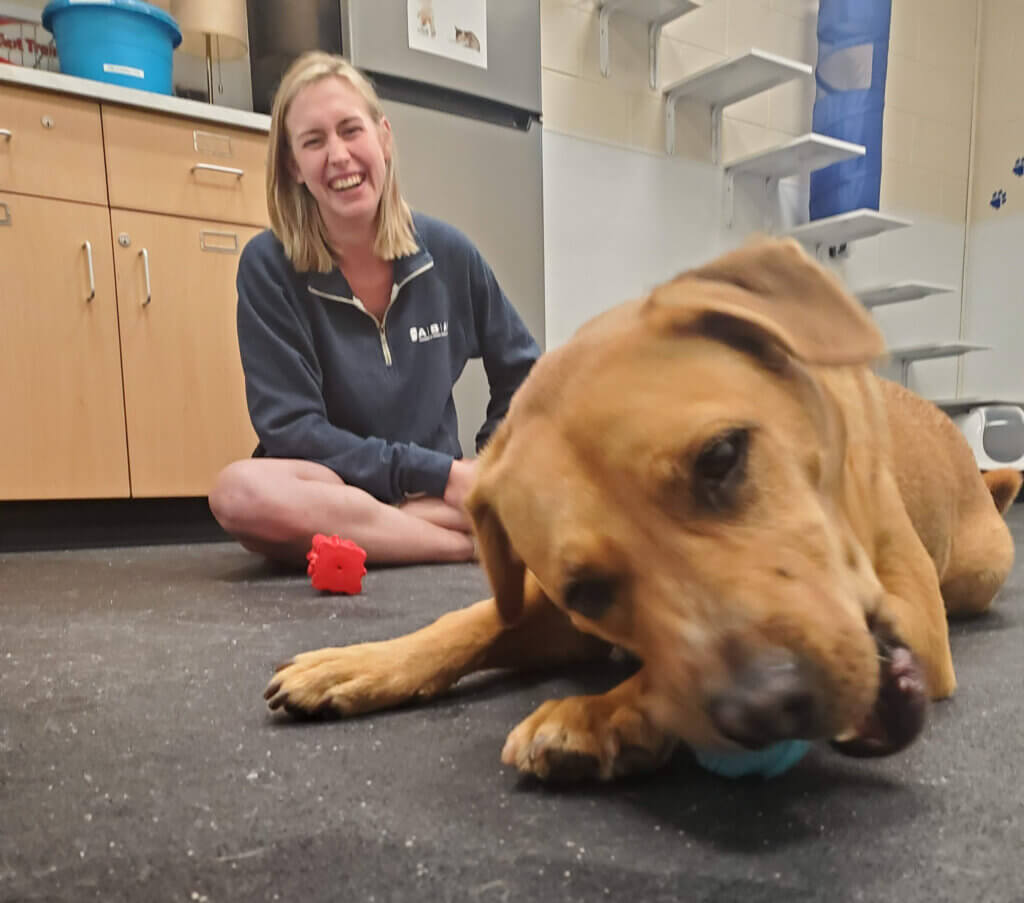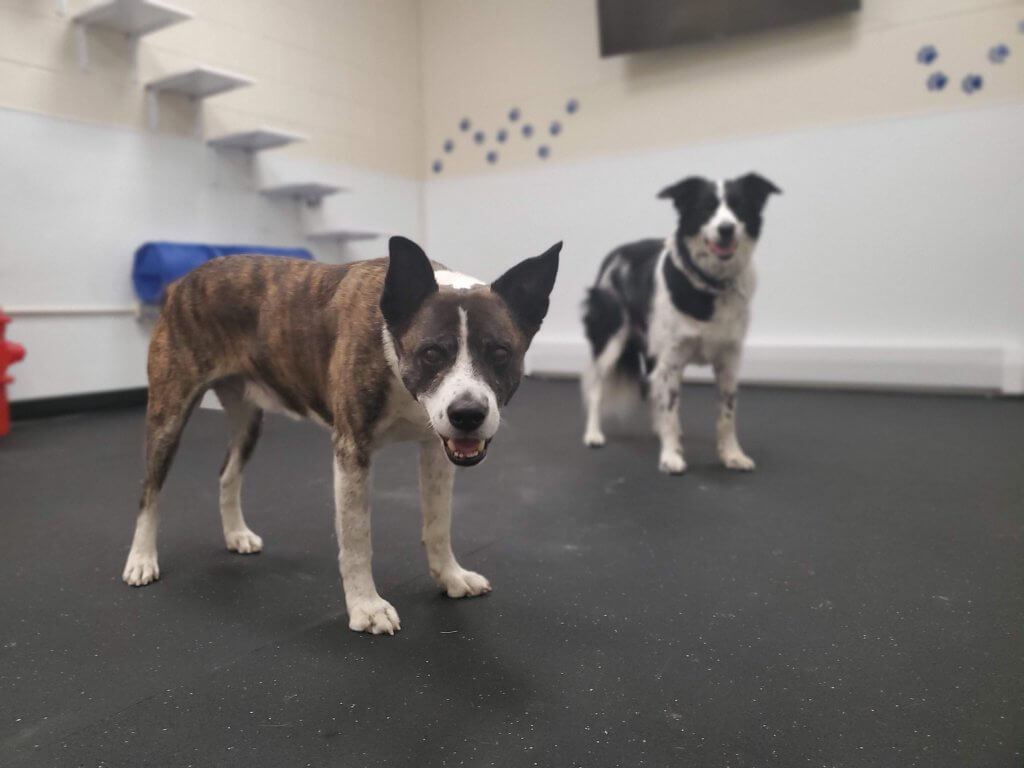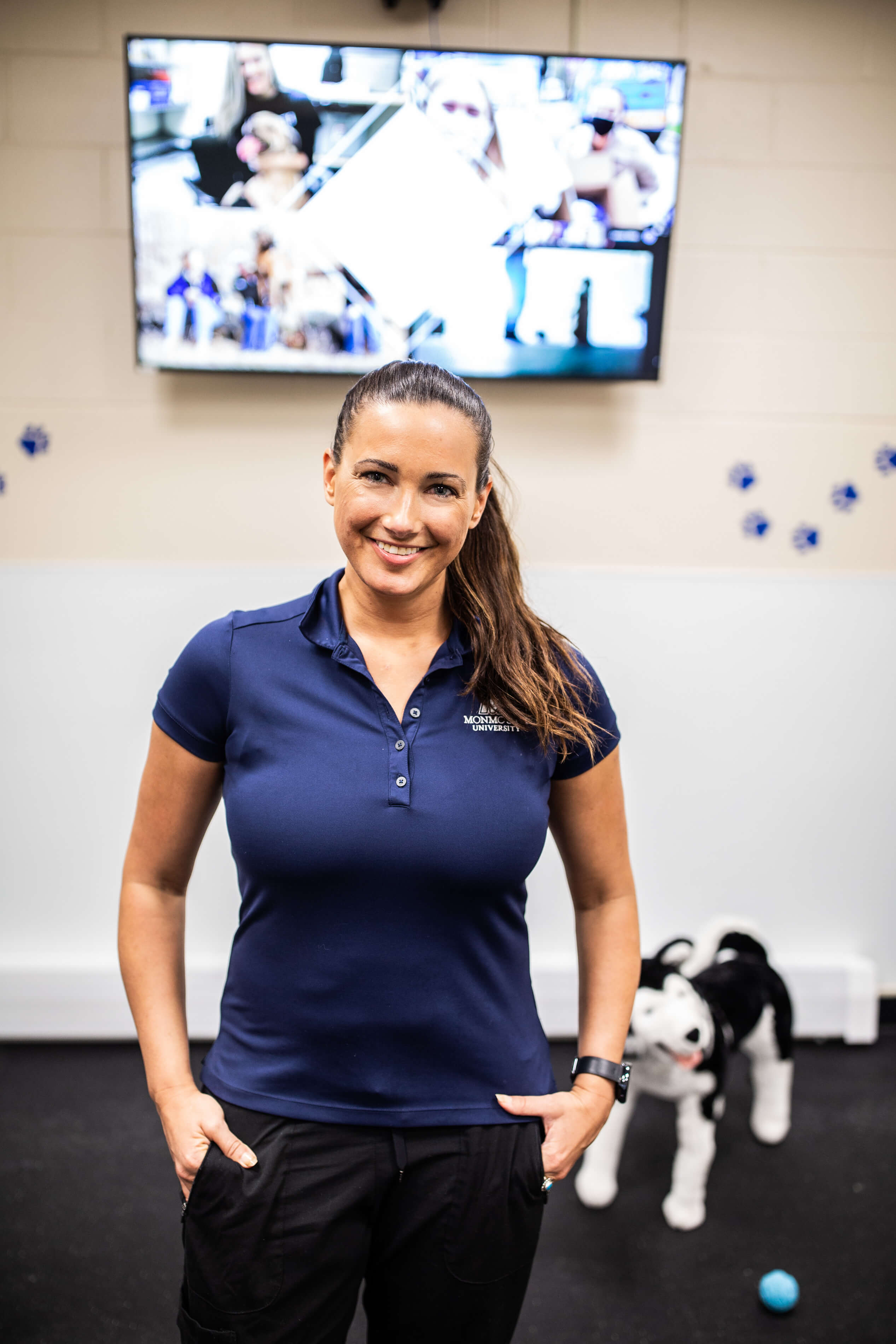Lindsay R. Mehrkam, Ph.D., BCBA-D, is the lead author of a recently published study in the peer-reviewed scientific journal, “Animal Cognition,” which demonstrated an increased likeliness of companion dogs to play with one another when their owner is both present and attending to them.
Mehrkam, an assistant professor in the Department of Psychology and principal investigator of the Human-Animal Wellness Collaboratory (HAWC), studies ways to enhance animal well-being and improve the relationships between people and animals in society. Working alongside fellow teachers, researchers, students, and even teams from zoological facilities and shelters across the country, Mehrkam’s team contributes insight and understanding to the often-misinterpreted realm of human-animal welfare research.
The latest study, “Owner attention facilitates social play in dog–dog dyads (Canis lupus familiaris): evidence for an interspecific audience effect,” serves as the first to suggest that the simple presence of an interactive human audience affects social play in domesticated dogs.
“In some of our initial observations, we noticed that dogs, wolves, and wolf-dog crosses seemed to be enriched by social attention and petting from an owner or caretaker,” Mehrkam said. “They exhibited lots of positive behaviors, one of which included social play – a type of play that occurs between members of the same species. We wanted to examine this experimentally to see if what we were seeing stood up to repeated tests, or if it was just a coincidence or something else we were not accounting for.”

While completing the research, Mehrkam and her team observed the behaviors and characteristics of 20 of dogs (10 pairs) during multiple 15-minute sessions over the course of several weeks. The research encompassed a total of three possible experimental conditions, each of which differed distinctly in the level of owner attention provided. As was expected, the highest levels of social play between dog pairs were observed amongst the groups placed in the condition where owners were both present and most attentive.
These findings provide a new hypothesis for why dogs might play with one another. However, Mehrkam says, “There is more research to be done about specifically why human attention produces more play between owned dogs, but some theories are that perhaps the presence of the owner reinforces or makes the play event more rewarding. Another possibility is that the owner’s presence may signal that play is safer with them attending, so dogs are more willing to engage in a potentially risky or energetically costly behavior.”
Since the study was published earlier this spring, Mehrkam’s research has received widespread attention from numerous national and international press outlets.
“We are often mesmerized by the sight of lots of different types of animal behavior, but play has always been especially captivating,” Mehrkam said. “Visually, we can see sequences of predatory, mating, and communication forms of behavior alternating back and forth, but perhaps what is most interesting is that there is still much debate as to what the evolutionary and lifetime benefits of play are. This is just one study that helps us move closer to that answer for this species.”
With pet ownership rising across the United States, especially in light of the COVID-19 pandemic, it may be more important to recognize and appreciate all of the considerations that go into domesticated animal play, and more broadly, how people influence the natural behavior of their companion animals. Human-animal interactions is a relatively new but growing scientific field within psychology and animal behavior that can help us better understand performance, sociability, health, and general well-being of the animals that we share our environments with.
“We are looking forward to conducting both in-person and virtual studies with dogs and cats through our Applied Animal Behavior Research Clinic this year on how we can set up successful environments to promote healthy play – and what insights that may draw into our own play behavior as well,” said Mehrkam.
Monmouth University students, faculty, and staff are welcome to visit the Applied Animal Behavior Research Clinic, explore available in-person and virtual studies, and sign up their dog or cat for opportunities that look at training and enrichment, play, and other behavior and cognition topics.

Additional articles on the study:
Dogs play together to please us humans, N.J. scientist’s new study suggests NJ.com
The Surprising Way Dogs Act When They Know They’re Being Watched Pet Business
Dogs Are More Inclined to Play with Other Pets When Their Owner Is Watching, a New Study Finds Martha Stewart & MSN News
Dogs Are More Inclined to Play with Other Pets When Their Owner Is Watching, a New Study Finds Yahoo!
Dog Show: Pet pooches play more when humans are watching Phys.org
Dogs Play More When People Are Watching The Bark


